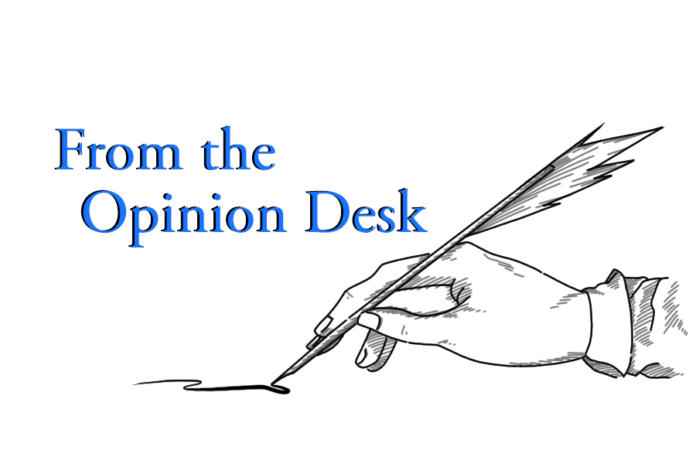Students who opt out of the program face a lengthy refund processes and a difficult time accessing required materials
With a new quarter comes preparing for classes, reading endless syllabuses and, more often than not for many on the Editorial Board, opting out of Equitable Access. The quarter system is known for its rapid-fire nature, and for those choosing to opt out, needing to fill out the online form before the quarter even begins is ridiculous. Although Equitable Access was launched in 2020 with good intentions, the uniform, flat fee is a poor solution since everyone has different textbook needs.
This program was advertised as reducing the burden textbook prices have on students and streamlining the process of accessing course materials. The quarterly opting-out process, however, is both burdensome and inefficient. Students are able to opt out on their own on Equitable Access’ site until the Sunday night before the quarter starts, but afterwards will need to email Equitable Access to opt out until the 20th day of instruction, which is the final deadline.
Since Equitable Access is likely receiving a huge volume of emails during the first few days of the quarter, it can take days for them to respond and, according to the UC Davis Store’s website, two to five business days after that for the refund to appear in a student’s account. Not everyone has the financial security to wait around for almost $200 when they may need to pay rent, car insurance, utilities and more by a set date. Given how emailing Equitable Access lengthens the refund process even more, students should be able to opt out on Equitable Access’ site until the 20th day of instruction. But students should not be automatically opted into a $169 program in the first place — instead, everyone should be opted out by default and have the choice to opt in.
To defend automatically opting all students in, UC Davis compares Equitable Access to the fees that support essential services such as Unitrans and mental health resources. This is a poor comparison, however, since these two other fees are significantly less than Equitable Access and were voted on by students. We understand that textbook publishers might not have agreed to participate in Equitable Access without all students being opted in by default, but this decision was made by administration with many students feeling little to no agency, and its high cost and lengthy refund process can put unnecessary strain on vulnerable students.
UC Davis emphasizes the ease of accessing materials with Equitable Access, but Equitable Access also makes obtaining textbooks significantly less convenient if not impossible for students who have opted out. Some niche books are best available from the bookstore, but the campus store stopped selling most print materials outside of Equitable Access after the program launched. These print books can be specially ordered through the bookstore for those opted out of Equitable Access, but the current shipping estimate is two to two and a half weeks, over one-fifth of the entire quarter. Equitable Access is convenient, but only for students able to pay for it — everyone who opts out, including the vulnerable students it seeks to help, are significantly more inconvenienced.
Equitable Access is also unnecessary for some classes, since many instructors are aware of the strain expensive textbooks put on students and go out of their way to provide free, open-access materials for their courses. This quarter, two members of the Editorial Board have zero Equitable Access materials and were still automatically enrolled in the program. This is unacceptable — even though the money isn’t charged if you opt out before the quarter begins or is eventually refunded otherwise, some students are being charged for something that provides absolutely no service to them. At the very least, students with zero Equitable Access materials should be automatically opted out.
Of course, buying all new materials would cost a fortune without Equitable Access, but many students buy used books, borrow from the library or find free PDFs online. Students have other priorities like food, rent, utilities and many more, so buying expensive textbooks may seem less necessary. $169 can be a month of groceries for a thrifty shopper, a large portion of rent or an important safety net. Although this can be more affordable for some students than buying textbooks, other students voiced their concerns over the price point when the program was launched.
We understand that UC Davis cannot mandate all instructors to use open-source textbooks for their courses. Switching textbooks can be a lot of extra work for instructors, since some may have materials they’re more familiar with, and e-books with access codes for online homework greatly reduce the amount of time spent grading.
However, encouraging instructors to adopt open-source textbooks and providing them with support to find relevant free materials would increase equity by removing the price tag from vital learning sources altogether. Additionally, making UC Davis lab manuals downloadable for free so students can print them out would help lower the cost of STEM materials. This isn’t unheard of — when classes were online due to the COVID-19 pandemic, some lab classes provided the manuals as a PDF on Canvas (and some still do).
Equity is defined as providing different levels and types of support to groups with different needs in order to achieve equal outcomes. Since Equitable Access treats everyone uniformly, it would be more apt to name it “Equal Access.” We appreciate that UC Davis is concerned about textbook prices and wants to help students succeed, but Equitable Access in its current form is not the best solution. UC Davis predicts the cost of Equitable Access will go down over time (and it has), but that does little to help its current students who are struggling to afford the program right now.
Written by: The Editorial Board








